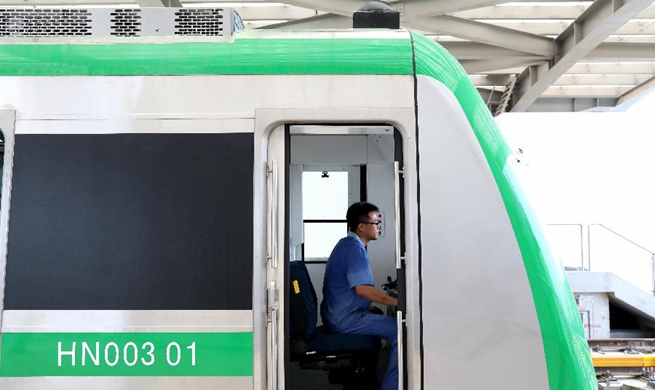SHENZHEN, Aug. 2 (Xinhua) -- To prepare the radiation plan for a rectal cancer patient, physician Chen Bo used to spend more than an hour studying a CT scan image and manually determining the targeted area.
Now, with the help of the latest artificial intelligence (AI) technology, the whole process takes him less than three minutes.
At the Cancer Hospital of Chinese Academy of Medical Sciences, a new AI-powered computer program has helped doctors cut hours from the meticulous manual process of targeting radiation treatment.
The new program, developed by the Beijing-based cancer hospital and Shenzhen Haichuang medical company, uses deep-learning technology to predict patterns from previous samples and automatically produces plans for radiotherapy.
The program, which was put into clinical use in June, can now be used for rectal, breast and nasopharynx cancer. As the program improves, it is expected to be used for more types of cancer in the future.
Using the new program, a physician can save about three hours to plan the radiation treatment for nasopharynx cancer, and about 50 minutes for breast cancer, according to Chen.
"By providing high-quality and precise radiotherapy services, the program can meet the demand of a larger number of cancer patients," said Li Yexiong, director of the radiotherapy department in the cancer hospital.
"Our department received more than 6,300 patients last year and many doctors were over-worked," said Li. "The program can save them a lot of time and energy so that they can provide better services to patients."

















